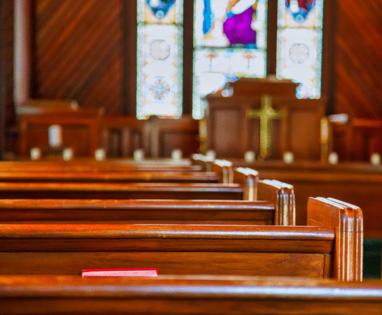Commentary: Finding common ground in America's religious realignment
Published in Op Eds
In a moment defined by fracture and division, a surprising development has emerged in America's religious landscape. The decades-long decline of Christianity is leveling off.
According to new research from the Pew Research Center, the share of Americans identifying as Christian has stabilized at around 62% — a dramatic shift from previous trends that saw consistent year-over-year drops in religious affiliation. This "pause" in religious decline offers a unique opportunity to examine whether faith communities might help heal our nation's deep sociopolitical wounds.
The timing of this latest phenomenon could not be more apropos. As America grapples with unprecedented polarization and the fraying of civic bonds, religious institutions — despite their internal struggles — may be uniquely positioned to foster dialogue, understanding, and responsiveness across divides.
Research shows that spirituality remains resilient even as traditional religious participation wanes. A striking 86% of Americans believe that people have souls beyond their physical bodies, while 79% believe in something spiritual beyond the natural world.
The emergence of a shared spiritual foundation, transcending political and denominational boundaries, offers a common grounding for meaningful dialogue. More intriguingly, younger Americans, while less traditionally religious, maintain strong spiritual sensibilities. Among adults aged 18-24, 82% believe in the existence of the soul — nearly matching their grandparents' generation. This spiritual continuity amid institutional change hints at possibilities for intergenerational bridge-building that could help ease sociopolitical tensions.
Religious communities remain among the few spaces where Americans of different political persuasions interact regularly. While political segregation increasingly defines our neighborhoods, workplaces, and social circles, houses of worship continue to bring together people across ideological lines —particularly in racially diverse congregations, which have grown significantly in recent years. However, leveraging these opportunities requires religious institutions to embrace shifts in their approach to civic engagement:
1. Faith communities must move beyond the polarizing rhetoric that is often characterized by religious political engagement. The data shows that religious Americans span the political spectrum, particularly across racial and ethnic lines. Spiritual leaders who acknowledge and celebrate this diversity, rather than advance partisan agendas, can help model healthy political dialogue.
2. Religious institutions should focus on their unique capacity to foster what sociologist Robert Putnam calls "bridging social capital" — connections that link different communities. While many churches have become ideologically homogeneous, those that intentionally create spaces for cross-cultural and cross-political relationship building can help rebuild civic trust.
3. Faith communities must engage rising generations on their terms, recognizing that spiritual seeking often looks different today than in previous eras. Young adults' strong spiritual inclinations and skepticism of institutions suggest an opportunity to reimagine religious communities that resonate with contemporary sensibilities while preserving ancient wisdom about human flourishing and social harmony.
Additional strategies might include:
— Establishing interfaith and cross-ideological dialogue programs that bring together diverse congregations for relationship-building and standard action on shared concerns.
— Creating intergenerational initiatives that pair spiritually-minded emergent leaders with "seasoned" religious practitioners in ways that enable mutual learning and understanding.
— Cultivating new models of spiritual community that combine traditional practices with contemporary approaches to meaning-making and social engagement.
— Training religious leaders in the art of facilitating difficult conversations across political and cultural divides.
Stabilizing America's religious landscape is crucial for reimagining faith's role in democracy. Despite their imperfections, religious institutions remain repositories of social capital and ethical wisdom that our fractured society desperately needs.
By embracing their potential as guides or facilitators in navigating contemporary realities, they can help weave our tattered civic fabric together. Such work will require humility and creativity from spiritual guides and facilitators of faith. We must remain open to skepticism while exchanging in good faith among all parties. When many traditional sources of social cohesion have eroded, the persistent spiritual longings revealed in this research—and the institutional networks that have historically nurtured them—may offer essential resources for rebuilding American democracy.
No one faithful institution or individual is charged with reversing secularization or restoring religious dominance. Instead, at best, such institutions and their disciples ought to channel spiritual energy toward healing our divisions and respecting plurality. In this light, the pause in religious decline is an invitation to reimagine how faith can serve the common good in an increasingly diverse society.
____
Rev. Dr. F. Willis Johnson is a spiritual entrepreneur, author, and scholar-practitioner whose leadership and strategies around social and racial justice issues are nationally recognized and applied.
_____
©2025 The Fulcrum. Visit at thefulcrum.us. Distributed by Tribune Content Agency, LLC.




























































Comments